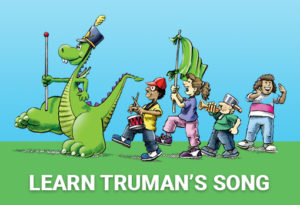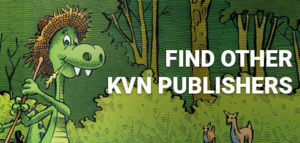Translator
 Please tell our readers a little bit about yourself.
Please tell our readers a little bit about yourself.
My name is Corinne McKay, and I’m a French to English translator in Boulder, Colorado. French was always my favorite subject in school, and I was lucky to have really good teachers who helped me get better at it! When I was in high school, my French teacher even took our entire French class on an exchange program to Paris for three weeks, and that’s when I really decided that I wanted to do a job that involved French. I got my bachelor’s degree in English and French, and during my junior year of college I went to school in Grenoble, France, in a program where I lived with a host family (who didn’t speak a word of English) and took all of my classes in French. After that, I got my master’s in French Literature from Boston College and worked as a high school French teacher for several years. I loved teaching, but when my daughter was born in 2002, I wanted to find a job where I could work from home and use French. That’s when I started my own freelance translation business, and 13 years later, I still love it!
What does a translator do?
Translators change written words from one language to another. Lots of people confuse translators with interpreters, who work with spoken words or sign language; so now you know (unlike a lot of journalists and radio newscasters!) that the phrase, “Speaking through a translator…” is incorrect, because translators don’t speak…they write! Translators usually work in only one “direction,” into their native language. So for example I only translate from French into English. Interpreters usually work in both directions, for example from English into Spanish and from Spanish into English.
What kind of training does it take to be a translator?
To be a translator, you need to have near-native skills in your foreign language. Some translators learn their foreign language in school, while others learn it from speaking a language other than English at home—that’s called being a heritage speaker, for example if you speak Spanish at home with your family, but speak English at school. Most translators have at least a bachelor’s degree, which could be in a foreign language or could be in another subject, and lots of translators also have a master’s degree or higher. Translators can be certified by the American Translators Association; if they pass the certification exam, they can put “CT” (Certified Translator) after their name. Translators also specialize: for example there are translators who specialize in translating scientific documents, or legal documents, or computer software, or the manuals that go with medical devices. So, lots of translators also have additional training or work experience in their specializations.
When/How did you know you wanted to be a translator?
I’ve loved French ever since I started taking it in middle school. In high school, I even used to translate French poems for fun (maybe a strange idea of fun, but I loved it!). When I went to school in France, I did a translation internship where I translated part of a French business school textbook, and that’s when I really decided that someday, I wanted to be a translator.
Why is this work important/how does it apply to everyday life for most people?
Whether you realize it or not, you probably read translations almost everyday. Books are a good example: I bet that almost anyone reading this magazine has read the fairy tales “Cinderella,” “Hansel and Gretel” or “Little Red Riding Hood.” They were originally written in German, so we can only read them in English thanks to the work of translators. If you buy Chinese tea, Italian tomato sauce or French cheese, and you don’t speak Chinese, Italian or French, you can only read the label because a translator translated it. And if American companies want to sell their products in other countries, they hire translators to translate everything from websites to product labels to patents to legal contracts. It’s actually hard to think of an example of something that would never be translated!
 What is a typical day like for you?
What is a typical day like for you?
Translators work with clients all over the world, which means that we often have clients in other time zones. I live in the Mountain time zone, so by the time I get up around 7 in the morning, it’s 3 in the afternoon for my clients in France and Switzerland. So, I check my e-mail as soon as I get up, so that I can write back to my European clients before they leave the office. I used to work at home, but now I work in a co-working office where you can rent a desk so that you don’t have to work from home alone. So after I have breakfast with my family, I’ll ride my bike to my office and spend most of the rest of the day translating. I spent most of this summer translating two books (a murder mystery and a mountaineering memoir), but mostly I translate for public health projects in West Africa and Haiti, and for businesses that work with clients in French-speaking countries.
What do you most enjoy about your work?
Being a translator is a great job if you love to read, write and learn about new things. The other day, someone said to me, “Translators know stuff that nobody else knows!” and it’s kind of true. Here are some things I’ve learned by translating about them: Mecca, in Saudi Arabia, has the world’s largest vacuum-powered garbage disposal system (yes…instead of garbage trucks, they have huge tubes that suck the garbage underground!); Switzerland has four official languages (German, French, Italian and Romansch), but the country with the most official languages is Zimbabwe, which has 16; the Eiffel Tower was built for the 1889 World’s Fair, and was never meant to be permanent. It was supposed to be demolished in 1909, but the French decided to save it because it could be useful as an enormous radio antenna. These are the kinds of things you get to learn about as a translator!
What are some challenges you face in your work?
I love pretty much everything about being a translator, but I’m a pretty social person, and translation requires you to work alone at a computer most of the time. So, I like working in an office with other people, and I like meeting up with other translators to talk about our work.
What do you like to do when you are not working?
I live near the mountains in Colorado, so my husband and my daughter and I spend most of our free time mountain biking, skiing and hiking. I also play the lute (a Renaissance instrument that looks a little like a guitar), I like to garden, and my daughter and I walk dogs at our local animal shelter. Like most translators, I also love to travel, and Italy is my favorite non-French speaking country to go to on vacation!





